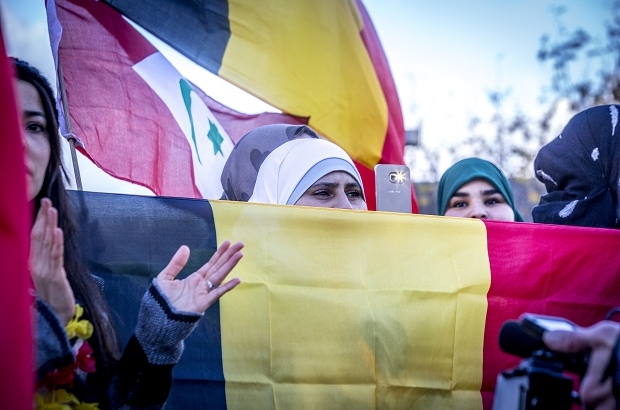- Daily & Weekly newsletters
- Buy & download The Bulletin
- Comment on our articles
Almost one in 10 new Belgians are Moroccan, report shows
Of the 38,342 foreigners to obtain Belgian citizenship last year, the highest proportion were Moroccan, according to the latest report from the Federal Migration Centre.
The top three countries of origin were Morocco (9%), Syria and Romania.
“Moroccans in Belgium have entered a process of irreversible stabilisation, as shown by their propensity to acquire Belgian nationality, which remains higher than the average for other foreign groups,” Hassan Bousetta and Marco Martiniello, two researchers specialising in immigration, told RTBF back in 2003.
But while Moroccans have consistently represented the largest share of foreigners obtaining Belgian nationality for the last 20 years, they have been immigrating to the country for even longer.
First waves arrived in response to labour shortage
An agreement struck with Morocco back in 1964, when Belgium was short on labourers amid an industrial expansion, made it easier for Moroccans to cross over without any state control.
Many of the first immigrants worked in the mines, which Belgian and then later Italian workers had also done for some time, before no longer being willing to conduct the risky and difficult work.
Even still, many Moroccons were here even before then.
“The presence of Moroccans in Belgium is older, particularly in Wallonia since the 1920s,” explained Bousetta. “Immigrants arrived via France, which is a first indication that this presence is the indirect product of colonisation.”
Similar to Belgium in the 1960s, France sought out Moroccan workers in 1912, then to help with labour shortages related to World War I.
Difficulties for immigrants when their work was no longer needed
Moroccan immigration is spread over five periods: from 1912 to 1964, from 1964 to 1974, from 1974 to 1989, from 1989 to 2001, and from 2011 to the present.
The number of Moroccans coming to Belgium has grown by leaps and bounds during that time.
In 1964, 461 Moroccans were registered, compared to 40,000 in 1974 and 343,000 by the start of 2021.
From 1974, the recruitment of foreign labour was officially stopped. The labour shortage was deemed over, which led to difficulty for many of the immigrants who had already come to Belgium: mines closed and men lost their jobs, making it harder to support their families.
Radicalised Belgian-Moroccans responsible for major terrorist attacks
In 1988, the first local councillor of Moroccan origin was elected in Antwerp at the same time as the far-right Vlaams Belang party saw some of its greatest electoral successes, putting issues like immigration and radical Islam centre-stage.
After the terrorist attacks of 11 September 2011, public sentiment shifted even further against Moroccans: “The radicalisation of a part of the Muslim population leads to a re-reading of the Moroccan presence in Belgium,” said Bousetta.
In the Paris attacks of 13 November 2015, and those in Brussels on 22 March 2016, the perpetrators were determined to be Belgian-Moroccans.
Today Moroccans are the largest foreign community in Belgium, ahead of Italians, and they seek citizenship at higher rates: 74% become Belgians, compared to 46% of Italians.
But unlike Italy, Morocco is not part of the European Union, meaning citizenship offers Moroccans greater benefits than it necessarily would for Italians.
Applications for residence by Moroccan nationals in Belgium are mainly for family reasons (65% of applications), according to the 2022 Annual Immigration Report.
Photo: Hatim Kaghat/Belga














